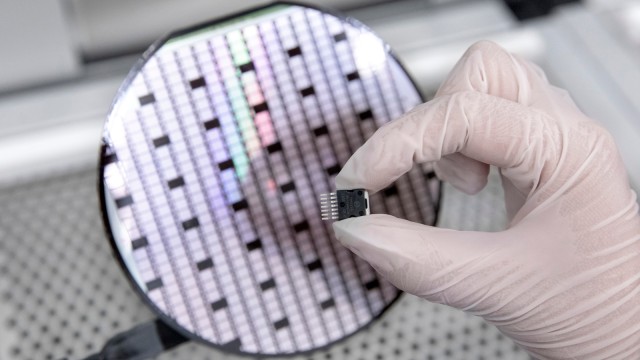Reutlingen, Germany – Many of today’s key projects focus on the same objective: to improve energy efficiency and thereby protect the environment. These projects are typically in areas such as electromobility, renewable energy, and edge and cloud computing – including the requisite data centers. Experts agree that silicon carbide (SiC) semiconductors and the electronic components containing them will ensure the most efficient use of the electricity at our disposal. The object of the publicly funded “Transform” project (trusted European SiC value chain for a greener economy) is to establish a resilient European supply chain for this technology, ranging from wafers and other basic materials right up to finished SiC power semiconductor devices and power electronic applications. In a consortium led by Bosch, a total of 34 companies, universities, and research institutes from seven European countries have joined forces to work toward this goal. “The aim of the Transform project is to secure a leading role for Europe in new technologies based on silicon carbide,” says Jens Fabrowsky, who holds the position of executive vice-president in the Bosch Automotive Electronics division. Scheduled to run until 2024, the publicly funded project is focusing on five use cases in the automotive, industry, renewable energy, and agriculture sectors.
This project receives funding from the ECSEL Joint Undertaking (JU) under grant agreement No 101007237. The JU receives support from the European Union's Horizon 2020 research and innovation program as well as Germany, France, Italy, Sweden, Austria, Czech Republic, and Spain.
Website of the Transform project: https://sic-transform.eu/
Inquiries to project office: office@SiC-transform-project.eu
Mobility is the largest Bosch Group business sector. It generated sales of 55.8 billion euros in 2024, and thus contributed around 62 percent of total sales. This makes the Bosch Group one of the leading mobility suppliers. Bosch Mobility pursues a vision of mobility that is safe, sustainable, and exciting. For its customers, the outcome is integrated mobility solutions. The business sector’s main areas of activity are electrification, software and services, semiconductors and sensors, vehicle computers, advanced driver assistance systems, systems for vehicle dynamics control, repair-shop concepts, as well as technology and services for the automotive aftermarket and fleets. Bosch is synonymous with important automotive innovations, such as electronic engine management, the ESP anti-skid system, and common-rail diesel technology.
The Bosch Group is a leading global supplier of technology and services. It employs roughly 412,000 associates worldwide (as of December 31, 2025). According to preliminary figures, the company generated sales of 91 billion euros in 2025. Its operations are divided into four business sectors: Mobility, Industrial Technology, Consumer Goods, and Energy and Building Technology. With its business activities, the company aims to use technology to help shape universal trends such as automation, electrification, digitalization, connectivity, and an orientation to sustainability. In this context, Bosch’s broad diversification across regions and industries strengthens its innovativeness and robustness. Bosch uses its proven expertise in sensor technology, software, and services to offer customers cross-domain solutions from a single source. It also applies its expertise in connectivity and artificial intelligence in order to develop and manufacture user-friendly, sustainable products. With technology that is “Invented for life,” Bosch wants to help improve quality of life and conserve natural resources. The Bosch Group comprises Robert Bosch GmbH and its roughly 490 subsidiary and regional companies in over 60 countries. Including sales and service partners, Bosch’s global manufacturing, engineering, and sales network covers nearly every country in the world. Bosch’s innovative strength is key to the company’s further development. At 136 locations across the globe, Bosch employs some 82,000 associates in research and development.
Additional information is available online at www.bosch.com, www.bosch-press.com.





